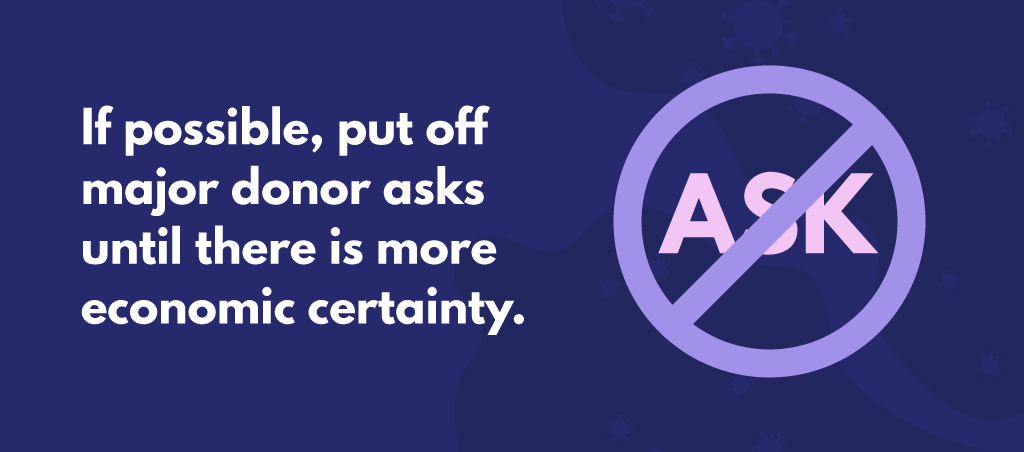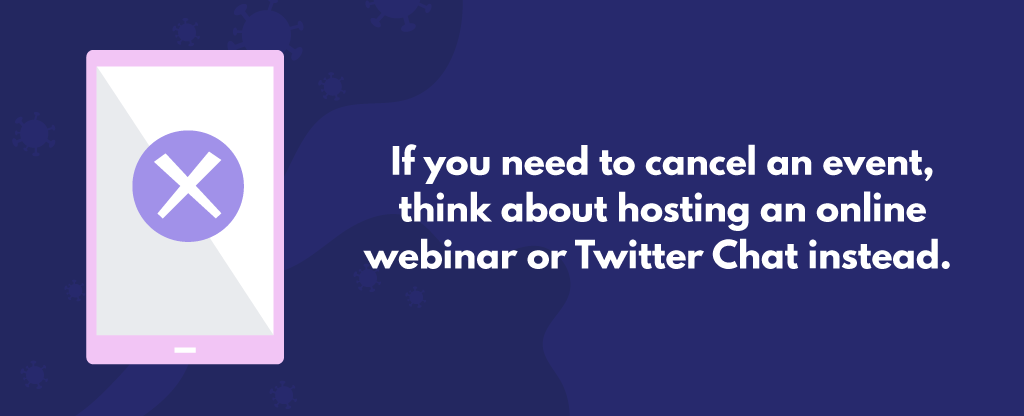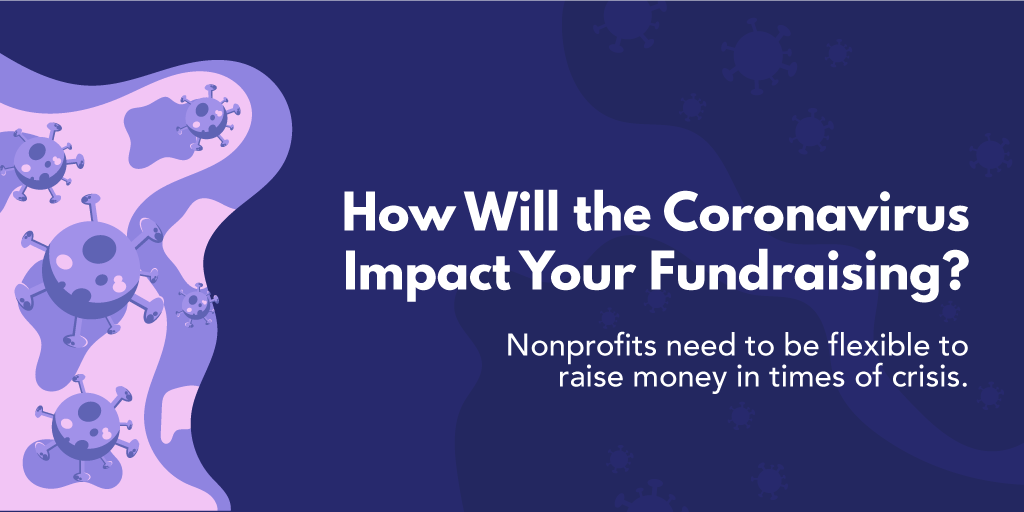Let’s cut to the chase. The world feels like a different place than it was just a few weeks ago. The response to COVID-19, a strain of the coronavirus, is in full swing as more cases are confirmed every day. Recent gains in the stock market have been erased and many fundraisers are wondering how severely the coronavirus will impact fundraising.
The World Health Organization officially declared the coronavirus outbreak a global pandemic. So naturally, people are on edge. And while the response to COVID-19 is unlike anything we’ve seen before, as fundraisers this isn’t our first rodeo.
Our organizations made it through the Zika Virus in 2016, and through the panic of an Ebola outbreak, the Swine Flu, and SARS before that.
So, what is your nonprofit’s plan to get through this recent epidemic? And how will the coronavirus impact your fundraising plans?

Impact on Giving
Uncertain economic times will always affect fundraising. People get jittery and decide it may not be the best idea to make their usual donation in the wake of so much economic instability.
Factories in China cannot keep up with demand while significant proportions of the workforce are under quarantine.
And according to a NPR poll, 18 percent of American adults said they had missed out on work hours because of the outbreak.
So, some of your donors could be assuming the worst. They fear what could happen if the outbreak gets worse and clutch their wallets as a result.
So, you might expect to see below average results if you are sending a spring appeal in the next few weeks.
If your spring appeal falls short of expectations, think of ways to make up the difference. Consider reaching out during the summer with an email appeal. Or, create a more robust year-round communications strategy to create opportunities to raise money outside your normal appeal schedule.
Are you in the middle of major donor asks? If so, the coronavirus could impact your fundraising.
Be prepared for donors to hesitate or a commit to a lower amount than you expected. If you can, consider delaying your major donor asks until there is more certainty. By doing so, you may find that you secure a larger commitment.
Does your organization work in healthcare? You may be able to position your organization at the forefront of fighting the coronavirus if you work is focused on public health. Consider developing a special appeal focused on the outbreak and what your organization is doing to help.

What About my Big Event?
Nonprofits planning a big event this spring are on edge right now. Many events have been canceled across the globe out of fears of creating breeding grounds for the virus. Professional sports seasons have been postponed or shut down and many big annual conferences have been cancelled.
So, will the coronavirus impact your upcoming fundraiser? Should you pull the plug? This may seem unthinkable if you depend on fundraising events to reach your annual goal.
Officials are urging people to avoid large public gatherings of more than 10 people, so if you have an event coming up in March or early April, it’s probably best to cancel until the virus is contained and the situation grows clearer.
However, if you have a fundraising event in late April or May, we urge patience and caution. Keep an eye on the situation. Hopefully, things could improve by then and you may not have to cancel.
But, it’s important to coordinate with your local health officials. Reach out and see if other events in your area are being cancelled and ask what the risks are if you were to go ahead as planned.
Then, have a contingency plan in place. For example, you will need to adjust if you think it’s fine to hold your event, but you’re struggling to get anyone to register. Keep your audience in the loop about your plans for the event, address their concerns, and let them know if anything changes.
And think about other ways you can get your donors to engage without gathering together. Perhaps you can transition to an online event, like a webinar or Twitter chat. And if you have to cancel, reach out to donors, let them know what’s going on and how sorry you are that you can’t hold the event.
And make sure you still give them an opportunity to support your organization! Creating more opportunities to give can help negate the coronavirus’ impact on your fundraising.
Be Flexible
The virus and unpredictability seem to go hand in hand. And the truth is, it’s too early to tell how severly the coronavirus will impact your fundraising. So, the most important advice we can offer nonprofits is to research, listen to your donors, be flexible, and don’t stop fundraising!
If your donors don’t seem all that worried about the virus and there’s not a significant risk in your area, you can proceed somewhat normally, but with caution.
However, if you notice an overall decline in engagement, you may need to adjust. Only time will tell how the cornonavirus will impact fundraising.







